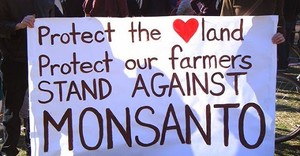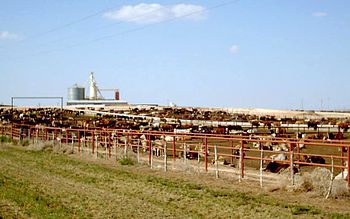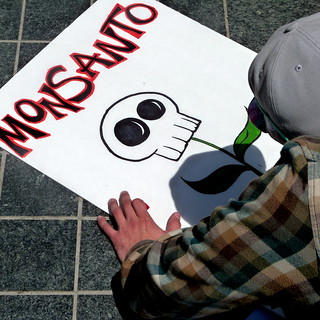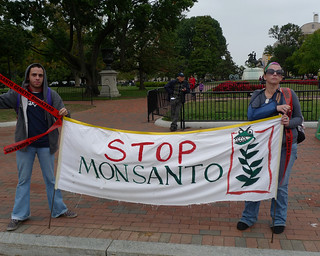“Control the oil, and you control nations. Control the food, and you control the people”* - Henry Kissinger.
This is no ordinary book about the
perils of GMO.
Engdahl takes the reader inside the corridors of power,
into the backrooms of the science labs, behind closed doors in the
corporate boardrooms.
The author cogently reveals a diabolical world of
profit-driven political intrigue, government corruption and coercion,
where genetic manipulation and the patenting of life forms are used to
gain worldwide control over food production.
If the book often reads as a
crime story, that should come as no surprise. For that is what it is.
Engdahl’s carefully argued critique goes
far beyond the familiar controversies surrounding the practice of
genetic modification as a scientific technique. The book is an
eye-opener, a must-read for all those committed to the causes of social
justice and world peace.
Introduction
“We have about 50% of the world’s wealth
but only 6.3% of its population. This disparity is particularly great
as between ourselves and the peoples of Asia. In this situation, we
cannot fail to be the object of envy and resentment. Our real task in
the coming period is to devise a pattern of relationships which will
permit us to maintain this position of disparity without positive
detriment to our national security. To do so,we will have to dispense
with all sentimentality and day-dreaming; and our attention will have to
be concentrated everywhere on our immediate national objectives.We need
not deceive ourselves that we can afford today the luxury of altruism
and world-benefaction”- George Kennan, US State Department senior planning official, 1948.
This book is about a project undertaken
by a small socio-political elite, centered, after the Second World War,
not in London, but in Washington.
It is the untold story of how this
self-anointed elite set out, in Kennan’s words, to “maintain this
position of disparity.” It is the story of how a tiny few dominated the
resources and levers of power in the postwar world.
It’s above all a history of the
evolution of power in the control of a select few, in which even science
was put in the service of that minority. As Kennan recommended in his
1948 internal memorandum, they pursued their policy relentlessly, and
without the “luxury of altruism and world-benefaction.”
Yet, unlike their predecessors within
leading circles of the British Empire, this emerging American elite, who
proclaimed proudly at war’s end the dawn of their American Century,
were masterful in their use of the rhetoric of altruism and
world-benefaction to advance their goals.
Their American Century paraded
as a softer empire, a “kinder, gentler” one in which, under the banner
of colonial liberation, freedom, democracy and economic development,
those elite circles built a network of power the likes of which the
world had not seen since the time of Alexander the Great some three
centuries before Christ - a global empire unified under the military
control of a sole superpower, able to decide on a whim, the fate of
entire nations.
This book is the sequel to a first volume, A Century of War: Anglo-American Oil Politics and the New World Order.
It traces a second thin red line of power. This one is about the
control over the very basis of human survival, our daily provision of
bread.
The man who served the interests of the postwar American-based
elite during the 1970’s, and came to symbolize its raw realpolitik, was
Secretary of State Henry Kissinger.
Sometime in the mid-1970’s,
Kissinger, a life-long practitioner of “Balance of Power” geopolitics
and a man with more than a fair share of conspiracies under his belt,
allegedly declared his blueprint for world domination: “Control the oil and you control nations. Control the food, and you control the people.”
The strategic goal to control global
food security had its roots decades earlier, well before the outbreak of
war in the late 1930’s.
It was funded, often with little notice, by
select private foundations, which had been created to preserve the
wealth and power of a handful of American families.
Originally the families centered their
wealth and power in New York and along the East Coast of the United
States, from Boston to New York to Philadelphia and Washington D.C.
For
that reason, popular media accounts often referred to them, sometimes
with derision but more often with praise, as the East Coast
Establishment.
The center of gravity of American power
shifted in the decades following the War.
The East Coast Establishment
was overshadowed by new centers of power which evolved from Seattle to
Southern California on the Pacific Coast, as well as in Houston, Las
Vegas, Atlanta and Miami, just as the tentacles of American power spread
to Asia and Japan, and south, to the nations of Latin America.
In the several decades before and
immediately following World War II, one family came to symbolize the
hubris and arrogance of this emerging American Century more than any
other.
And the vast fortune of that family had been built on the blood
of many wars, and on their control of a new “black gold,” oil.
What
was unusual about this family was that early on in the building of
their fortune, the patriarchs and advisors they cultivated to safeguard
their wealth decided to expand their influence over many very different
fields.
They sought control not merely over oil, the emerging new energy
source for world economic advance.
They also expanded their influence
over the education of youth, medicine and psychology, foreign policy of
the United States, and, significant for our story, over the very science
of life itself, biology, and its applications in the world of plants
and agriculture.
For the most part, their work passed
unnoticed by the larger population, especially in the United States. Few
Americans were aware how their lives were being subtly, and sometimes
not so subtly, influenced by one or another project financed by the
immense wealth of this family.
In the course of researching for this
book, a work nominally on the subject of genetically modified organisms
or GMO, it soon became clear that the history of GMO was inseparable
from the political history of this one very powerful family, the
Rockefeller family, and the four brothers - David, Nelson, Laurence, and
John D. III - who, in the three decades following American victory in
World War II, the dawn of the much-heralded American Century, shaped the
evolution of power George Kennan referred to in 1948.
In actual fact, the story of GMO is that
of the evolution of power in the hands of an elite, determined at all
costs to bring the entire world under their sway.
Three decades ago, that power was based
around the Rockefeller family. Today, three of the four brothers are
long-since deceased, several under peculiar circumstances.
However, as
was their will, their project of global domination - “full spectrum
dominance” as the Pentagon later called it - had spread, often through a
rhetoric of “democracy,” and was aided from time to time by the raw
military power of that empire when deemed necessary.
Their project
evolved to the point where one small power group, nominally
headquartered in Washington in the early years of the new century, stood
determined to control future and present life on this planet to a
degree never before dreamed of.
The story of the genetic engineering and
patenting of plants and other living organisms cannot be understood
without looking at the history of the global spread of American power in
the decades following World War II.
George Kennan, Henry Luce, Averell
Harriman and, above all, the four Rockefeller brothers, created the very
concept of multinational “agribusiness”.
They financed the “Green
Revolution” in the agriculture sector of developing countries in order,
among other things, to create new markets for petro-chemical fertilizers
and petroleum products, as well as to expand dependency on energy
products.
Their actions are an inseparable part of the story of
genetically modified crops today.
By the early years of the new century,
it was clear that no more than four giant chemical multinational
companies had emerged as global players in the game to control patents
on the very basic food products that most people in the world depend on
for their daily nutrition - corn, soybeans, rice, wheat, even vegetables
and fruits and cotton - as well as new strains of disease-resistant
poultry, genetically-modified to allegedly resist the deadly H5N1 Bird
Flu virus, or even gene-altered pigs and cattle.
Three of the four
private companies had decades-long ties to Pentagon chemical warfare
research. The fourth, nominally Swiss, was in reality Anglo-dominated. As
with oil, so was GMO agribusiness very much an Anglo-American global
project.
In May 2003, before the dust from the
relentless US bombing and destruction of Baghdad had cleared, the
President of the United States chose to make GMO a strategic issue, a
priority in his postwar US foreign policy.
The stubborn resistance of
the world’s second largest agricultural producer, the European Union,
stood as a formidable barrier to the global success of the GMO Project.
As long as Germany, France, Austria, Greece and other countries of the
European Union steadfastly refused to permit GMO planting for health and
scientific reasons, the rest of the world’s nations would remain
skeptical and hesitant.
By early 2006, the World Trade Organization
(WTO) had forced open the door of the European Union to the mass
proliferation of GMO. It appeared that global success was near at hand
for the GMO Project.
In the wake of the US and British
military occupation of Iraq, Washington proceeded to bring the
agriculture of Iraq under the domain of patented genetically-engineered
seeds, initially supplied through the generosity of the US State
Department and Department of Agriculture.
The first mass experiment with GMO
crops, however, took place back in the early 1990’s in a country whose
elite had long since been corrupted by the Rockefeller family and
associated New York banks: Argentina.
The
following pages trace the spread and proliferation of GMO, often
through political coercion, governmental pressure, fraud, lies, and even
murder. If it reads often like a crime story, that should not be
surprising.
The crime being perpetrated in the name of agricultural
efficiency, environmental friendliness and solving the world hunger
problem, carries stakes which are vastly more important to this small
elite. Their actions are not solely for money or for profit.
After all,
these powerful private families decide who controls the Federal Reserve,
the Bank of England, the Bank of Japan and even the European Central
Bank. Money is in their hands to destroy or create.
Their aim is rather, the ultimate
control over future life on this planet, a supremacy earlier dictators
and despots only ever dreamt of. Left unchecked, the present group
behind the GMO Project is between one and two decades away from total
dominance of the planet’s food capacities.
This aspect of the GMO story
needs telling. I therefore invite the reader to a careful reading and
independent verification or reasoned refutation of what follows.
F. William Engdahl is a leading analyst of the New World Order, author of the best-selling book on oil and geopolitics, A Century of War: Anglo-American Politics and the New World Order,’ His writings have been translated into more than a dozen languages.



















